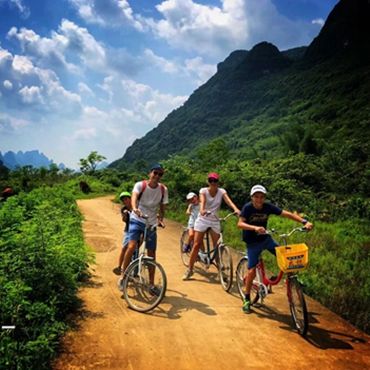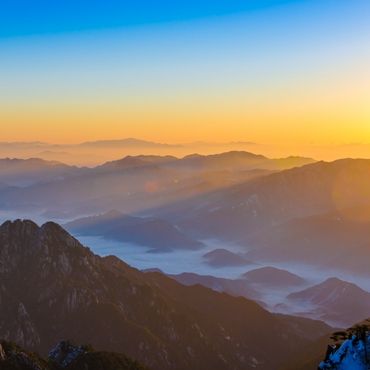Jiujiang Travel Guide & Tours
Located on the southern banks in the middle reaches of the Yangzi River, Jiujiang lies in the north of Jiangxi Province and it situates at the north of Mt. Lu and the easten band of Poyang Lake. Jiujiang received its name because Nine is the figure head which Chinese people think, nine rivers join here (Ganjiang water, Po water, Yu water, Xiu water, Gan water, Xu water, Shu water, Nan water and Peng water). Hemmed in by mountains and rivers, Jiujiang was a beautiful city with long history. Jiujiang City was built in the Qin Dynasty. Because of its prime location, it is not only a hub of transportation but also an important industrial and commercial city in southern China.
It has an area of 18,823 square kilometers and a population of 4.13 million. The downtown area of Jiujiang is crisscrossed by lakes and highways. Modern buildings stand one next to another, surrounded by flowers and trees. The city is charming for many places of interest, such as Gantang Lake, and Nengren Temple, Lushan - one of the most famous scenic areas in China. the Hanbo Lake, the Sandie Spring, the Donglin Temple, and the Bailudong Ancient School. The special products of Jiujiang are Lushan Yunwu tea, osmanthus flower tea, crisp candies with osmanthus flowers, Chinese sturgeon, whitebait, hilsa herring, partridges, and fungus.

A noted town in ancient China, for years it served as a communication center along the middle reaches of the Yangtze and a town of strategic importance. During the period of the Three Kingdoms (220-280), Jiujiang, then called Chaisong, was a military stronghold of the Kingdom of Wu. Jiujiang lies on the roads leading to Mount Lushan and Poyang Lake. Tourists can proceed to visit White Deer Cave (Bailudong) Academy and the Xingzi Hot Spring in Xingzi County. Traveling to the east along the Yangtze River, they can visit the scenic spots of Stone Bell Hill (Shizhongshan), Xiaogu Hill, and Dragon King‘s Palace Cave (Longgongdong) in Pengze County.
Jiujiang is rich in forest and aquatic resources. It also has many mineral deposits, including gold, copper, tungsten, limestone, silica, and molding sand. The major industries of Jiujiang include textile, shipbuilding, petroleum chemicals, machinery, power, construction materials, food processing, and mining. Jiujiang is a large grain region, and also produces cotton, jute, tea, timber, and fish.













